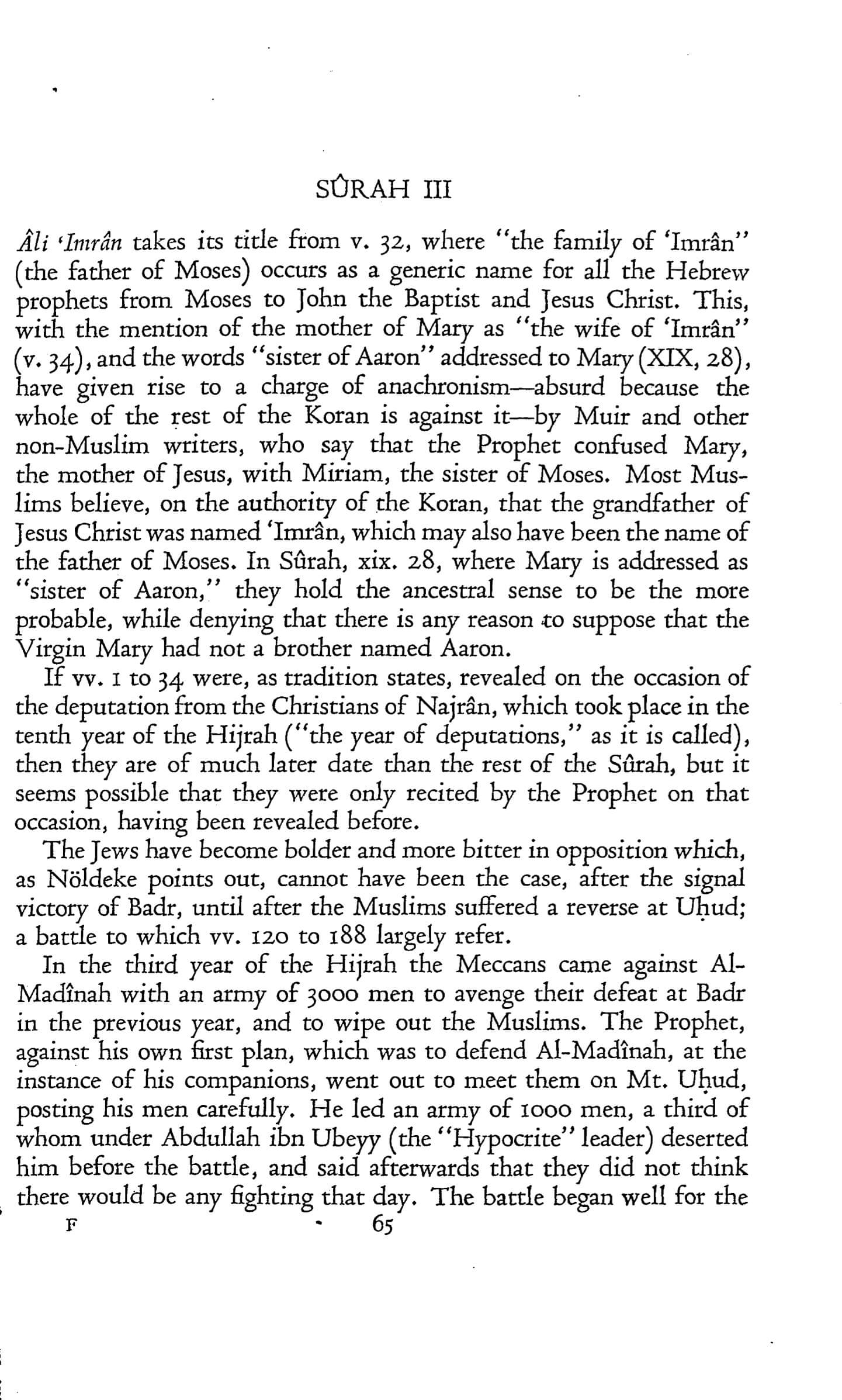Marmaduke Pickthall, The Meaning of The Glorious Koran. An Explanatory Translation (1930)
SÛRAH III
Âli ‘Imrân takes its title from v. 32, where “the family of ‘Imrân” (the father of Moses) occurs as a generic name for all the Hebrew prophets from Moses to John the Baptist and Jesus Christ. This, with the mention of the mother of Mary as “the wife of ‘Imrân” (v. 34), and the words “sister of Aaron” addressed to Mary (XIX, 28), have given rise to a charge of anachronism — absurd because the whole of the rest of the Koran is against it — by Muir and other non-Muslim writers, who say that the Prophet confused Mary, the mother of Jesus, with Miriam, the sister of Moses. Most Muslims believe, on the authority of the Koran, that the grandfather of Jesus Christ was named ‘Imrân, which may also have been the name of the father of Moses. In Sûrah, xix. 28, where Mary is addressed as “sister of Aaron,” they hold the ancestral sense to be the more probable, while denying that there is any reason to suppose that the Virgin Mary had not a brother named Aaron.
If vv. 1 to 34 were, as tradition states, revealed on the occasion of the deputation from the Christians of Najrân, which took place in the tenth year of the Hijrah (“the year of deputations,” as it is called), then they are of much later date than the rest of the Sûrah, but it seems possible that they were only recited by the Prophet on that occasion, having been revealed before.
The Jews have become bolder and more bitter in opposition which, as Nöldeke points out, cannot have been the case, after the signal victory of Badr, until after the Muslims suffered a reverse at Uḥud; a battle to which vv. 120 to 188 largely refer.
In the third year of the Hijrah the Meccans came against Al-Madînah with an army of 3000 men to avenge their defeat at Badr in the previous year, and to wipe out the Muslims. The Prophet, against his own first plan, which was to defend Al-Madînah, at the instance of his companions, went out to meet them on Mt. Uḥud, posting his men carefully. He led an army of 1000 men, a third of whom under Abdullah ibn Ubeyy (the “Hypocrite” leader) deserted him before the battle, and said afterwards that they did not think there would be any fighting that day. The battle began well for the
